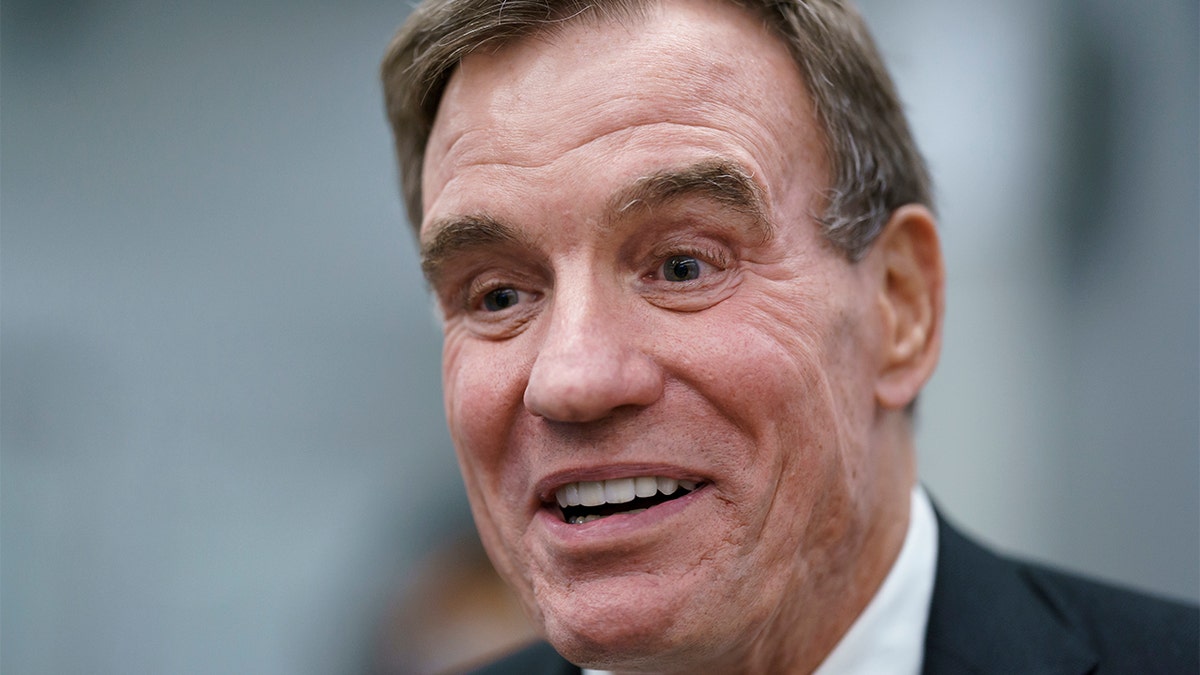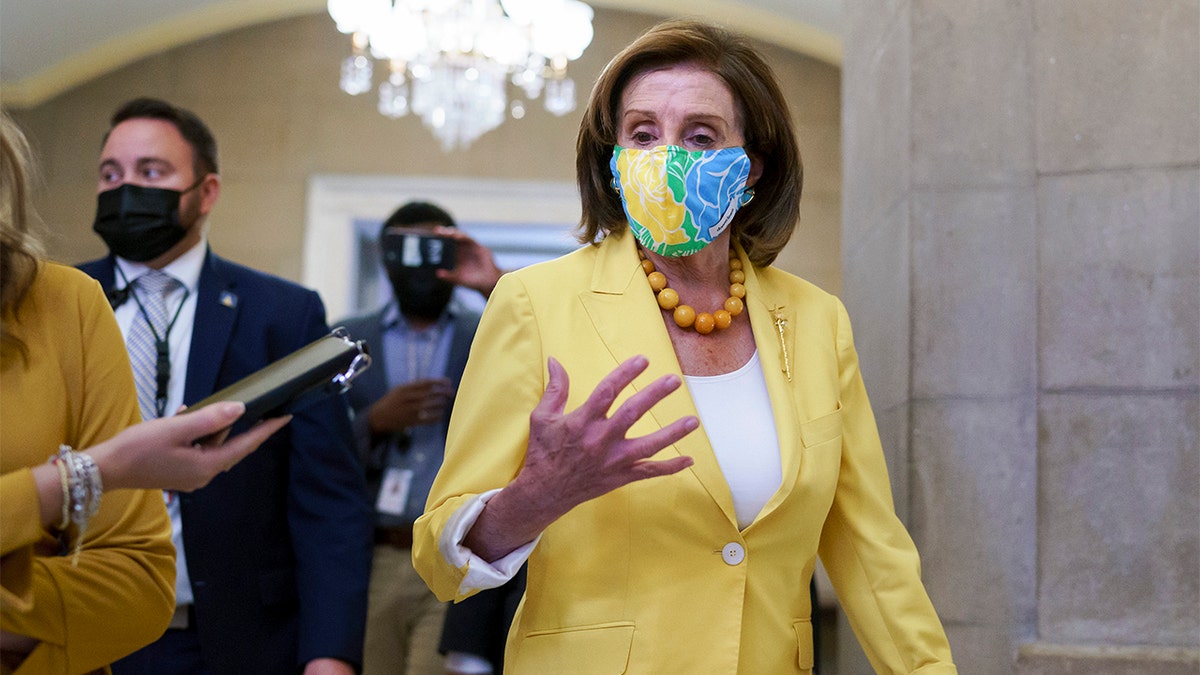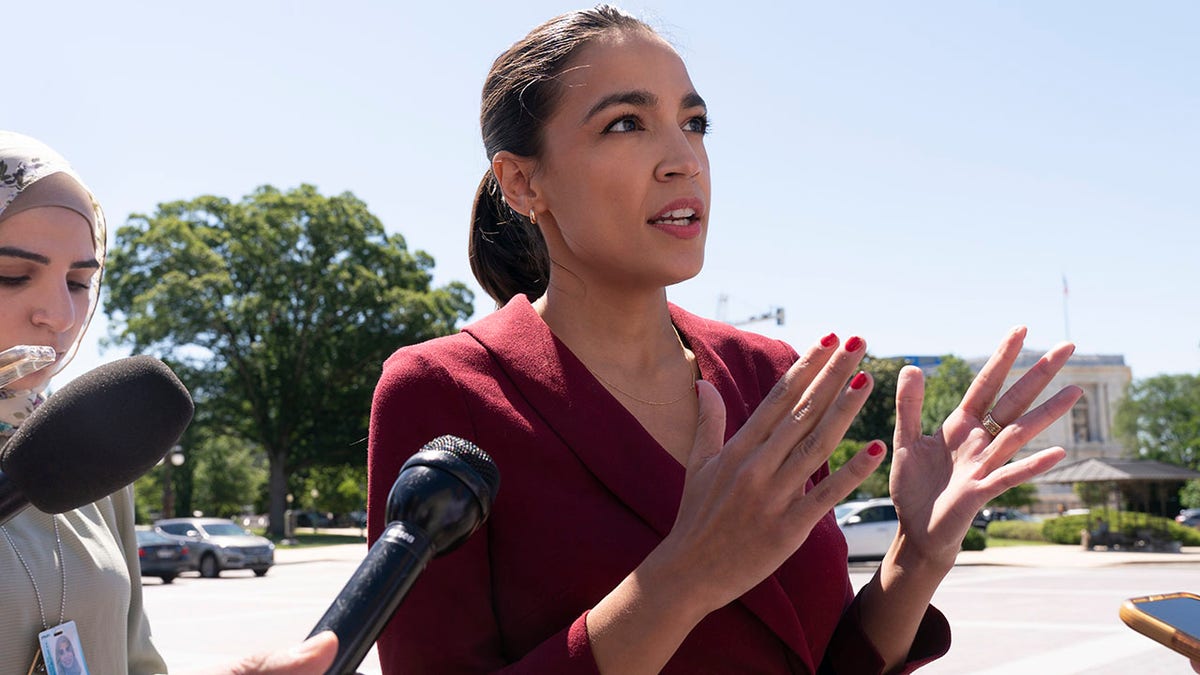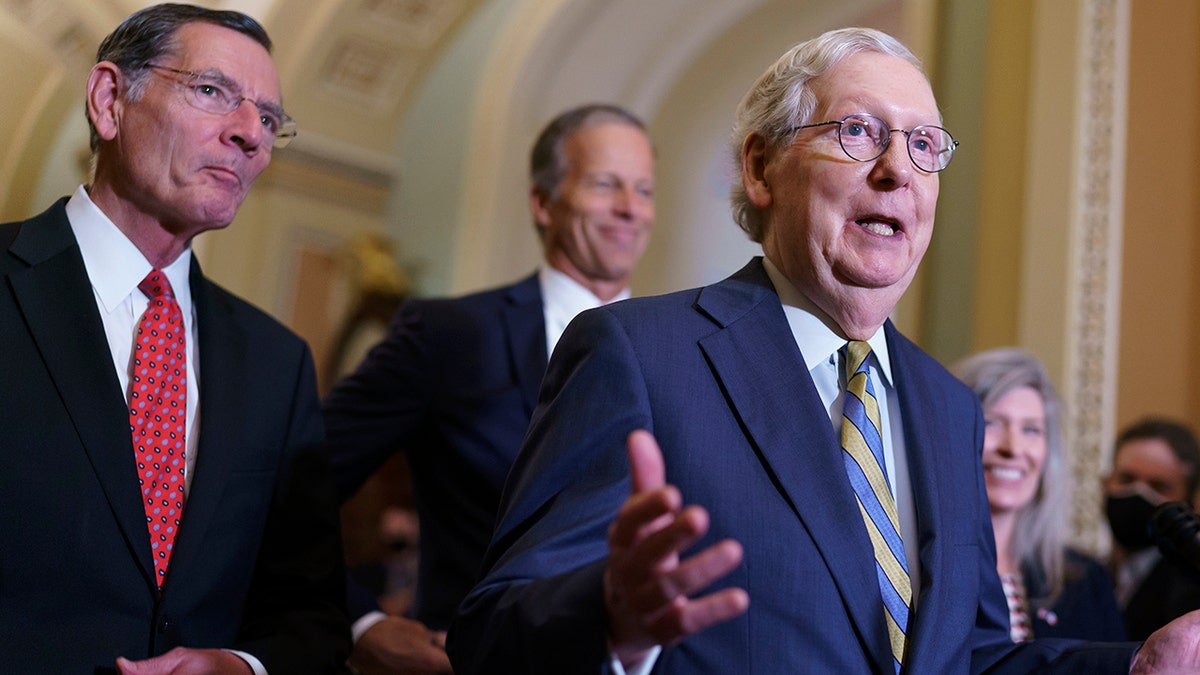Fox News Flash top headlines for September 15
Fox News Flash top headlines are here. Check out what's clicking on Foxnews.com.
"I find myself in an impossible situation," protested Rep. Stephanie Murphy, D-Fla., last Thursday afternoon.
The Florida Democrat is a moderate. A leader of the fiscally-conscious Blue Dog Coalition. And, Murphy’s "impossible situation" crystallized the plight facing congressional Democrats in their quest to pass the $3.5 trillion social spending bill.
The House Ways and Means Committee prepped its portion – a rather large portion, we might add – of the $3.5 trillion bill, over the past several days. Murphy tried to hold the fiscal bottom line. But she railed against the process to craft the bill in committee.

Rep. Stephanie Murphy, D-Fla., says that she finds herself in an "impossible situation" when trying to pass a social spending bill, something that progressives are pushing, but moderates Democrats like Murphy aren't so enthusiastic over the $3.5 trillion price tag. (House Ways & Means Committee)
DEMOCRATS MAY GO FOR BROKE THIS FALL WITH THEIR MASSIVE SPENDING PACKAGE. WILL VOTERS REWARD THEM?
At the time, Murphy said there were major sections of the bill lacking "scores," or cost analysis by the Congressional Budget Office. She said the bill was missing text for major sections. Murphy says she’s in an "impossible situation." She notes that she "cannot assess" various proposals in the bill if she doesn’t see text or CBO scores.
"I don’t think we can afford everything," said Murphy. "Unless something changes, I have no choice but to vote no on every subtitle (in the bill) and on final passage."
Murphy said it was hard to "pass judgment" on proposals that lacked cost estimates.
"I don’t know how we’re paying for them," said Murphy. "I don’t think we can afford to do everything."
Murphy isn’t the only one.
"There’s going to be lots of twists and turns over this coming month," said Sen. Mark Warner, D-Va., to Hillary Vaughn of FOX Business. "As someone who is committed to making sure this is paid for, that’s going to drive a lot of the debate."
Warner called the goal of wrapping up the basics of the bill by Sept. 15 "very aggressive timelines," adding "getting it right is really, really important."
Writing the $3.5 trillion reconciliation package is a massive undertaking. Americans want to know specifically what’s in the bill. Who pays more in taxes? Who scores a tax break? Who reaps the benefits of the massive plan?

Sen. Mark Warner, D-Va., speaks with reporters as he boards the Senate subway, at the Capitol in Washington, July 20, 2021. Warner expressed concerns over the bill being rushed, calling it a massive undertaking to be done before Sept. 15. (AP Photo/J. Scott Applewhite)
Democrats are stuffing this bill with social spending to address what they argue are deficiencies.
"A lack of paid leave. Inaccessible child care. Inadequate, long-term saving," said House Ways and Means Committee Chairman Richard Neal, D-Mass.
Here’s what we know is in the legislation – regardless of cost:
Across-the-board, paid family leave for up to three months. Free pre-K education.
But the internecine fighting between moderate and liberal Democrats threatens to tank the entire bill.
House Speaker Nancy Pelosi, D-Calif., stands by the $3.5 trillion cost. However, Pelosi did slightly crack the door ajar to the possibility of a smaller bill. Still, the speaker has questions for those pushing for a smaller bill.
"Where would you cut? Child care? Family medical leave pay-fors? Universal pre-K? Home health care?" asked Pelosi.
But this is starting to get challenging. Liberal Democrats are pressuring Democratic leaders to stick with $3.5 trillion. And moderates are digging in their heels, pushing for a smaller bill around $1.5 trillion to $2 trillion.

House Speaker Nancy Pelosi, D-Calif., stands firm on the $3.5 trillion price tag for the social spending bill, but hints that she's open to negotiating with moderates for a smaller bill. (AP Photo/J. Scott Applewhite)
Republicans know Senate Democrats must vote as a bloc to pass the social spending plan. Success or failure of the bill hinges on two moderate, Democratic senators.
"(Sen.) Joe Manchin of West Virginia and (Sen.) Kyrsten Sinema out from Arizona," said Senate Majority Leader Mitch McConnell, R-Ky., "I pray for them every night. I wish them well. We give them lots of love."
So, it’s almost the "mods" against "the Squad" in the Democratic party.
Progressives say they won’t support the bipartisan infrastructure package if they don’t score a top-drawer social spending plan that costs $3.5 trillion.
MANCHIN TELLS DEMS TO ‘HIT THE PAUSE BUTTON’ ON $3.5T SPENDING PLAN
Rep. Alexandria Ocasio-Cortez, D-N.Y., even described the bipartisan infrastructure package as "anti-climate" and suggested it "was drafted by ExxonMobil."
"I will not vote for a conservative infrastructure package unless we have ‘Build Back Better,’ AKA, this ($3.5 trillion) budget reconciliation package," said Ocasio-Cortez.
So Congress moves into a fascinating period, wrestling with five distinct, yet linked issues:
The bipartisan infrastructure bill; the Democrats’ $3.5 trillion social spending bill; raising the debt ceiling; avoiding a government shutdown; and finally, tacking on money for Hurricane Ida relief, somewhere, to any of these moving parts.

Progressive Democrat Rep. Alexandria Ocasio-Cortez, D-N.Y., speaks with reporters, June 17, 2021, as she arrives on Capitol Hill in Washington. Cortez says she will not vote for a conservative infrastructure package without the $3.5 trillion "Build Back Better" bill being passed. (AP Photo/Jacquelyn Martin)
The House plans to vote on the bipartisan infrastructure bill before or on Sept. 27. Remember, this already passed the Senate. The question is whether or not the House changes it at all and bounces it back to the Senate. That could cause problems. There is a coalition of some House Republicans who would support the current bill.
But it gets complicated:
Imagine if the House moves the infrastructure package – but the $3.5 trillion bill isn’t ready. In fact, it may not be ready for several more weeks – if not longer. And the price tag likely will shrink. Progressives in the House will explode – and may oppose the bipartisan infrastructure bill. That’s the fight between mods and the squad. Progressives will be apoplectic if the social spending bill starts to shrink or is delayed – even as the House mollifies the moderates with the infrastructure package.
That said, the $3.5 trillion reconciliation bill likely must be pared back so the Senate can pass it. Probably in the range of $1.5 trillion to $2 trillion.
NEW YORK MAGAZINE WRITER BLAMES JOE MANCHIN FOR PUTTING BIDEN PRESIDENCY IN 'MORTAL DANGER'
This is precisely why Democratic leaders are really starting to talk now about voting rights and maybe even (again) trying to find some way to alter the filibuster. The Democratic leadership is throwing those two things out there to boost the left. Liberals may have to take it on the chin with the size and scope of the social spending package.
It's possible Democrats could try to attach a debt ceiling increase to a bill to avoid a government shutdown. But then Republicans will balk. Expect some kabuki dancing on this for the next couple of weeks. Both sides are trying to dare the other to blow up the debt ceiling – and then blame the other.
Democrats and Republicans alike are playing with fire with the debt ceiling. Wall Street is watching. The bond market remembers the flirtation with the debt ceiling the summer of 2011. Standard and Poor’s downgraded the credit worthiness of the U.S. after the 2011 debt ceiling calisthenics.
McConnell has long said Democrats must raise the debt ceiling on their own. In a floor speech, McConnell said Democrats "have every parliamentary tool" available to handle the debt ceiling without Republican assistance. Remember, even if Democrats stick together to raise the debt limit, they would still need 10 Republican votes to overcome a filibuster and hit the 60-vote threshold.

Senate Minority Leader Mitch McConnell, R-Ky., joined by Sen. John Barrasso, R-Wyo., left, and Senate Minority Whip John Thune, R-S.D., right, speaks to reporters at the Capitol in Washington, Aug. 3, 2021. McConnell says his caucus will fight the "terrible policies" in the Democrats' reconciliation bill. (AP Photo/J. Scott Applewhite)
This is an effort by McConnell to force Democrats to add a debt ceiling increase into the budget reconciliation bill – because Republicans won't help raise the debt limit. Democrats could pass the debt ceiling as part of the reconciliation measure – because it’s not subject to a filibuster. But Democrats want bipartisan, GOP buy-in for a couple of reasons. First, they argue that Republicans ran up nearly $8 trillion in debt during the Trump administration. Secondly, Democrats know that some of their moderate, fiscally-conscious members may balk if they have to walk the plank on the debt ceiling as part of the reconciliation package without Republican air cover.
McConnell has said that Republicans will "fight these terrible, painful policies" in the reconciliation package "tooth and nail."
This is really a wedge by McConnell to potentially leverage the debt ceiling and make it tougher for Democrats to pass their reconciliation bill – if they must include the debt ceiling.
Democrats and Republicans will also have to negotiate some sort of a stopgap spending bill to avert a shutdown. Republicans will push for more defense spending, less domestic spending and the restoration of the Hyde Amendment, which bans federal money from going for abortion services. The long-standing Hyde Amendment was stripped out of the appropriations bills in the House this cycle. Otherwise, Republicans will advocate for a long, Band-Aid spending bill. Democrats would prefer a shorter one that runs into the fall or early winter. It is possible Democrats score the hurricane aid in this bill.
CLICK HERE TO GET THE FOX NEWS APP
So, the next month presents several challenging, ill-defined, gobs of legislative goo. This is all complicated and hard to figure out.
Or, as Stephanie Murphy characterized her own plight with the reconciliation plan, "an impossible situation."











































